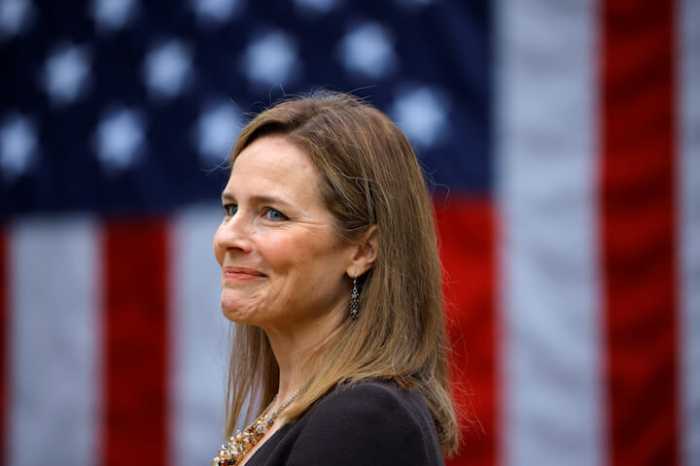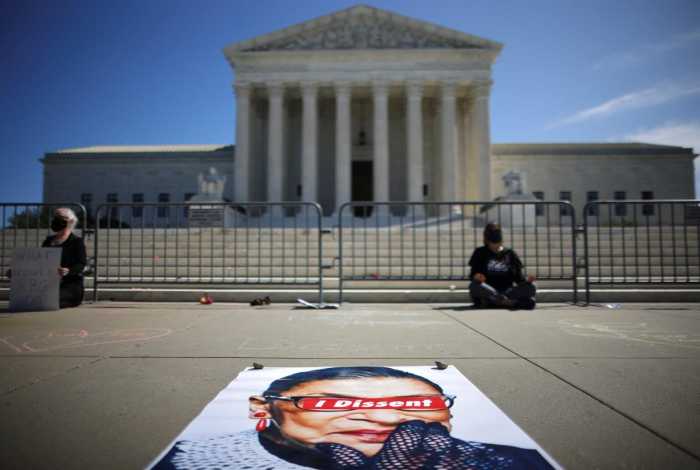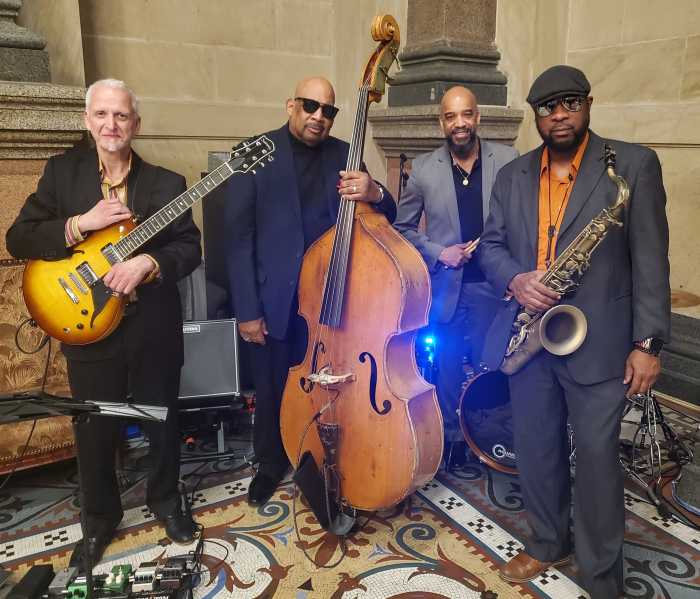Two conservative justices mounted a fresh attack on Monday on the landmark 2015 ruling that legalized gay marriage nationwide even as the U.S. Supreme Court rebuffed a bid by a former Kentucky official to avoid lawsuits over her refusal to grant marriage licenses to two same-sex couples.
The court turned away an appeal by Kim Davis, who had served as Rowan County clerk, of a lower court ruling that let the lawsuits accusing her of violating the constitutional rights of the couples proceed.
In an opinion accompanying that action, Justice Clarence Thomas, joined by Justice Samuel Alito, wrote that the same-sex marriage ruling, known as Obergefell v. Hodges, continues to have “ruinous consequences” for religious liberty. Thomas and Alito both dissented in the Obergefell ruling.
“Davis may have been one of the first victims of this court’s cavalier treatment of religion in its Obergefell decision, but she will not be the last,” Thomas wrote.
Thomas and Alito agreed on technical grounds with the decision to reject the Davis appeal. But Thomas took the opportunity to assert that the Obergefell decision has left “those with religious objections in the lurch” and made it easier to label them bigots “merely for refusing to alter their religious beliefs in the wake of prevailing orthodoxy.”
The court “has created a problem that only it can fix,” Thomas added.
LBGT advocacy groups took those comments as an ominous sign for same-sex marriage and gay rights on a court moving further rightward.
“These comments made clear that the war on marriage equality, against the lives of same-sex couples, is alive and well,” said Alphonso David, president of the Human Rights Campaign LGBT advocacy group.
If the Senate confirms President Donald Trump’s nominee Amy Coney Barrett, a favorite of Christian conservatives, the court would have a 6-3 conservative majority. With Justice Ruth Bader Ginsburg’s death and Justice Anthony Kennedy’s retirement, only three of the justices who comprised the court’s 5-4 majority in the Obergefell ruling still serve on the bench.
Jim Obergefell, a lead plaintiff in the 2015 case, said the opinion by Thomas and Alito signaled that the justices are willing to overturn the right to same-sex marriage.
“It is unthinkable that Alito, Thomas and others on the Supreme Court would want to take away that right and the dignity that comes along with it,” Obergefell said.
The Cincinnati-based 6th U.S. Circuit Court of Appeals ruled last year that Davis could be sued in her individual capacity as the former county clerk. It rejected her argument that she is protected by a legal doctrine called qualified immunity, which can shield government officials from liability in certain cases.
Davis was jailed for five days for defying court orders in the aftermath of the Obergefell decision to issue licenses to same-sex couples.
The couples – David Ermold and David Moore, and Will Smith and James Yates – sued Davis in 2015, accusing her of violating their constitutional right to marry as recognized in the Obergefell ruling. Both couples received licenses while Davis was jailed.
In the ruling, the court found that the Constitution’s guarantees of due process and equal protection under the law meant states cannot ban same-sex marriages.
A number of cases have arisen around the country testing the Obergefell decision’s scope and the rights of people to object to gay marriage on religious grounds.
On Nov. 4, the justices are due to hear a religious rights case involving Philadelphia’s refusal to place children for foster care with a Catholic agency that bars same-sex couples from serving as foster parents.





























